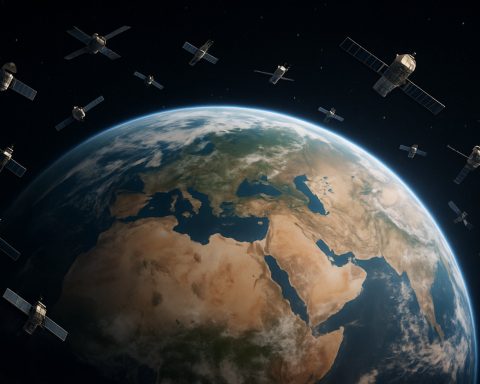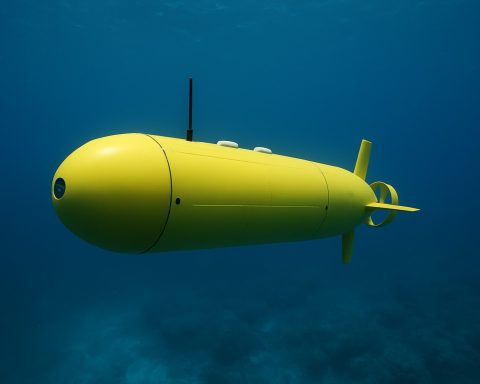- Porsche initiates a bold recycling project for electric vehicle batteries, focusing on sustainability and resource conservation.
- The process transforms spent battery cells into “black mass,” a granular material rich in nickel, cobalt, manganese, and lithium.
- The project addresses crucial material supply needs for future automotive batteries amid global challenges.
- Porsche has already processed 65 tonnes of batteries, extracting high-purity elements for new EV batteries.
- This initiative is a step towards a circular economy, encompassing a battery’s entire lifecycle from birth to rebirth.
- The project aligns with Porsche’s standards and prepares for upcoming EU regulations in 2031.
- Incorporating recycled content into new batteries could reduce environmental impact while preserving performance.
- Porsche’s commitment demonstrates that luxury and environmental responsibility can coexist in the automotive industry.
A sleek electric revolution hums beneath the hood of luxury cars, but what happens when the batteries fade, when the volts quiet down? Porsche, a beacon of automotive mastery, seeks to answer this question with bold initiative and green conviction.
Imagine a formidable machine shredding spent battery cells into a granular form called “black mass.” This gritty substance, infused with valuable metals, is the cornerstone of Porsche’s new recycling project. As the world heralds the electric vehicle era, manufacturers contend with a hidden challenge: securing the supply of nickel, cobalt, manganese, and lithium—critical elements lodged within the silent sentinels powering our automotive future.
Porsche’s project, a dance of futurism and conservation, has already transformed 65 tonnes of batteries from development vehicles into this mysterious black mass. Once separated, this raw material undergoes a meticulous purification process, extracting high-purity elements essential for crafting the next generation of EV batteries. Porsche insists on the purity of these elements, aligning their quality with the brand’s storied standards.
But this endeavor stretches beyond mere recycling. It’s a pledge to sustainability, a step towards a circular economy that wraps the entire lifecycle of a battery into a neat loop—from birth to rebirth. By doing so, Porsche isn’t just protecting the environment; it’s safeguarding future material reserves against geopolitical uncertainties and preparing for stringent EU regulations set to make their mark in 2031.
The final phase of Porsche’s vision is a testament to innovation and responsibility. The company intends to incorporate a defined quantity of recycled content into its battery manufacturing, testing these new cells in future car models. This closed-loop system could prove pivotal, limiting environmental impact while maintaining the performance for which Porsche is renowned.
Bold, forward-thinking, and rooted in environmental stewardship, Porsche’s project stands as a blueprint for a sustainable future. It’s not just about finding a use for old batteries; it’s about reshaping the automotive landscape, proving that luxury and responsibility can indeed drive hand in hand.
The Hidden Power of Porsche’s Battery Recycling Revolution
Porsche’s Electric Vision: Beyond the Battery
Porsche’s innovative approach to battery recycling is gaining attention in the automotive industry, not only for its commitment to sustainability but for its strategic foresight in navigating the challenges of the electric vehicle (EV) era. This ambitious project not only addresses environmental concerns but also ensures the brand’s competitive edge amidst the evolving landscape of green technology.
Key Insights into Porsche’s Recycling Initiative
– Recycling Process: At the core of Porsche’s plan is the transformation of used battery cells into a substance known as “black mass.” This gritty material is rich in critical metals—nickel, cobalt, manganese, and lithium—essential for manufacturing new batteries (source: Porsche). The extraction process for these elements involves shredding and purification, aiming for high-purity outputs that meet Porsche’s performance standards.
– Circular Economy and Sustainability: Porsche’s initiative represents a shift towards a circular economy, reducing dependency on raw materials and minimizing environmental impact. By incorporating recycled content in manufacturing, Porsche aims to close the loop on battery use, promoting sustainability and resource efficiency.
– Strategic Resource Management: Beyond environmental benefits, Porsche’s project hedges against potential shortages of critical minerals, which are vital yet often subject to geopolitical risks. This strategic foresight aligns with upcoming EU regulations demanding stricter material sourcing practices.
Market Forecasts and Industry Trends
The global push towards electrification in the automotive sector underscores the importance of sustainable practices such as recycling. According to recent studies, the demand for EV batteries is expected to grow exponentially, driven by increased consumer adoption and climate policies that favor green energy. This surge highlights the necessity for sustainable supply chain strategies like those pioneered by Porsche.
Potential Challenges and Considerations
While Porsche’s recycling initiative is groundbreaking, it is not without potential hurdles:
– Technological and Financial Investment: The development of efficient recycling technology and the associated costs can be significant. Companies must invest robustly in R&D to optimize the recovery process of valuable materials.
– Regulatory Compliance: Adhering to international recycling standards and future-proofing against evolving regulations are crucial but complex tasks for automotive manufacturers.
Recommendations and Quick Tips
– Stay Informed: Consumers and industry professionals alike should keep abreast of advancements in battery recycling and sustainable practices. This knowledge can drive informed decision-making and support eco-friendly choices.
– Explore Alternatives: Consider vehicles from manufacturers that prioritize sustainability in their production processes. Look for brands that have transparent recycling policies and environmental commitments.
– Support Innovation: Advocacy for policies that promote recycling and investment in sustainable technology can accelerate the transition to a circular economy in the automotive sector.
Porsche’s steps towards integrating recycled materials into battery production epitomize the blend of luxury and ecological responsibility. As the automotive world accelerates towards an electrified future, initiatives like these not only redefine sustainability standards but also position manufacturers as leaders in innovation and environmental stewardship.









